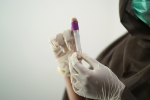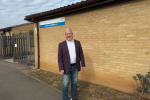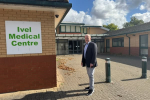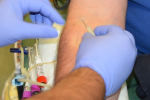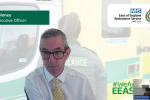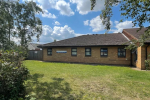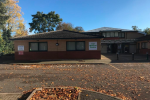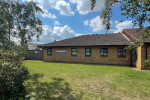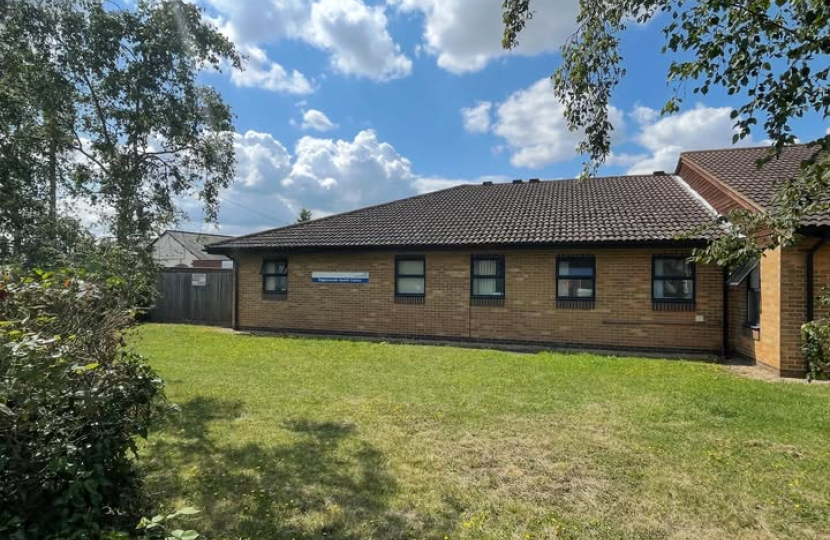
Primary care provision, in particular, access to GP appointments, frequently comes up at Richard's constituency surgeries and features prominently in constituent correspondence he receives. While access to GP appointments has been an issue in many parts of the country since the pandemic, the problem is especially pronounced in North Bedfordshire, where rapid housing growth has outpaced the expansion of local health services.
Since his election in 2019, Richard has visited nearly every GP practice in his constituency - many more than once. His main observation is that GPs are working hard and seeing more patients than ever, but the system is under strain due to a shortage of GPs and rising patient numbers in the Bedford, Luton and Milton Keynes (BLMK) Integrated Care Board (ICB) area.
Figures from June 2025 show that on average, each GP in BLMK area is responsible for 2,203 patients. This is significantly higher than the average in the East of England (1,859) and across the country (1,691).
Back in 2018, the BLMK average was 2,083 patients per GP. That means each GP now has 120 more patients than they did seven years ago - a 5.8% increase. Meanwhile, other parts of the country have seen improvements. The East of England’s average has dropped by 0.4%, and the national average has gone down by 3.8%.
The pressure on GP services in BLMK is further exacerbated by the decline in the proportion of fully qualified GPs. In June 2018, BLMK had 485 GPs, of which 87% were fully qualified. By June 2020, the total number had dropped to 460, and the proportion of qualified GPs fell to 83%. As of June 2025, the number of GPs has increased slightly to 522, but only 76% are fully qualified, with the remaining 24% still in training.
The situation is particularly challenging in Biggleswade where housing development has been increasing. Richard has worked closely with the Saffron Health Partnership (including Shannon Court Surgery in Sandy) and Ivel Medical Centre to support improvements.
While Members of Parliament do not have authority over NHS operations or budgets, Richard has used his position to bring together key stakeholders - GPs, practice managers, representatives from the ICB and members of Patient Participation Groups (PPGs). These meetings help ensure that concerns from both staff and patients are heard and addressed collaboratively.
More information on Ivel Medical Centre can be read here.
More information on Saffron Health Partnership can be read here
More information on Sandy Health Centre can be read here
Phlebotomy Services
Phlebotomy services remain a challenge across North Bedfordshire and a source of great frustration to many patients. While most surgeries offer some in-house testing, many patients still have to travel to either Bedford or Stevenage. It should be noted however that due to the additional focus on this service, rates of monthly in-practice testing at Saffron, Ivel and Sandy Health Centre has increased significantly from 1,500 tests in April 2025 to 1,910 in July, an increase of 27%.
For those still unable to access blood tests at their GP practices, poor public transport and delays in Bedford’s Phlebotomy Department have added to the strain. Richard has maintained regular contact with the hospital, and the recent recruitment of additional phlebotomists has helped stabilise the situation. Nevertheless, in the medium to long-term a more patient-friendly solution needs to be found for the East of the constituency where ever increasing populations cannot be expected to continue to have to travel for routine blood tests.
Following a suggestion from the local Patient Participation Group, Richard has had discussions with the Integrated Care Board regarding the possible introduction of a mobile phlebotomy unit that could serve the areas of Biggleswade, Sandy and Potton on a rotational basis. The ICB responded that Phlebotomy is now being offered as part of the Primary Care Network Extended Access service on Saturdays, and phlebotomy appointments are available to both Saffron/Sandy patients at both locations. With regards to Saffron specifically, the team offer in-house appointments at Biggleswade Health Centre by both a phlebotomist and other staff to maximise capacity and the Practice do also try to prioritise practice-based appointments for people who would struggle to get to Bedford or Lister Hospitals for any reason (e.g. elderly, frail, transport issues etc). Interestingly the ICB has noted that Saffron phlebotomy activity at Gilbert Hitchcock House in Bedford has also been decreasing, which seems consistent with the increases in provision locally by the practices. With many of these initiatives still relatively new, the ICB has suggested to delay a decision and conduct a review of the scale of demand for a mobile phlebotomy unit in Spring 2026.
You can read more about Richard’s work on this issue below.
